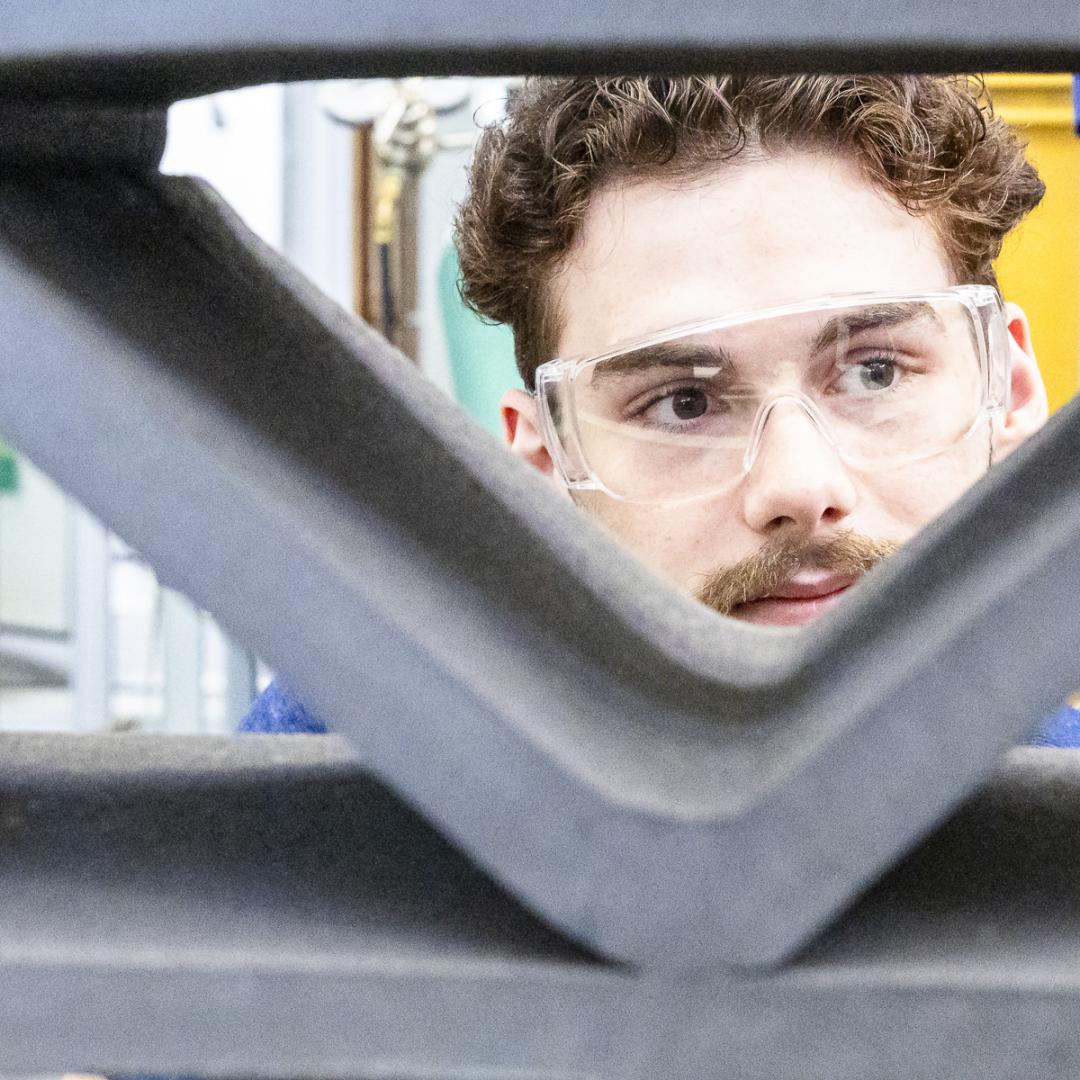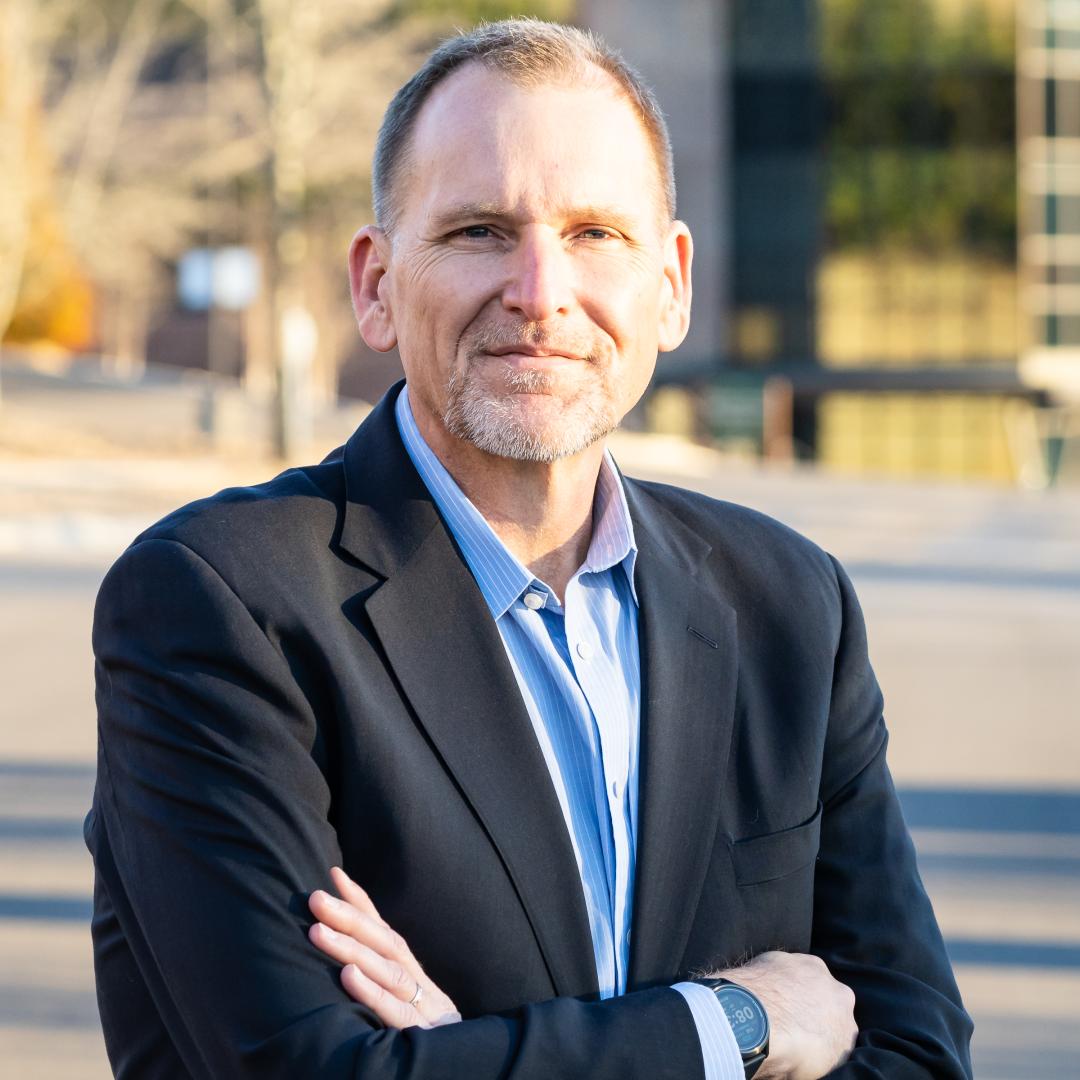Filter News
Area of Research
News Topics
- (-) Artificial Intelligence (1)
- (-) Decarbonization (3)
- (-) Physics (2)
- Big Data (1)
- Bioenergy (2)
- Biology (3)
- Biomedical (2)
- Buildings (2)
- Chemical Sciences (3)
- Clean Water (2)
- Climate Change (3)
- Computer Science (2)
- Coronavirus (1)
- Critical Materials (1)
- Cybersecurity (2)
- Energy Storage (6)
- Environment (9)
- Exascale Computing (1)
- Frontier (2)
- Fusion (1)
- Grid (2)
- High-Performance Computing (3)
- Hydropower (2)
- Isotopes (4)
- Machine Learning (3)
- Materials (4)
- Materials Science (1)
- Mathematics (2)
- Mercury (1)
- Microscopy (1)
- Nanotechnology (1)
- National Security (6)
- Neutron Science (2)
- Nuclear Energy (1)
- Polymers (1)
- Quantum Computing (1)
- Security (1)
- Simulation (3)
- Sustainable Energy (1)
- Transportation (2)
Media Contacts
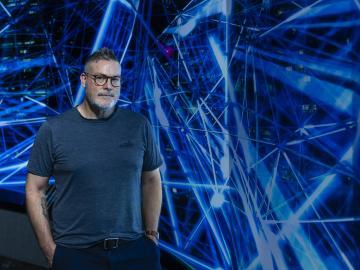
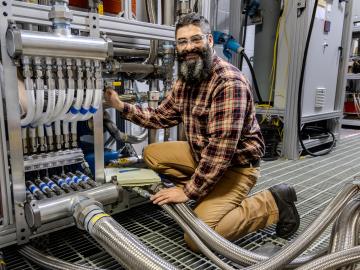
Within the Department of Energy’s National Transportation Research Center at ORNL’s Hardin Valley Campus, scientists investigate engines designed to help the U.S. pivot to a clean mobility future.
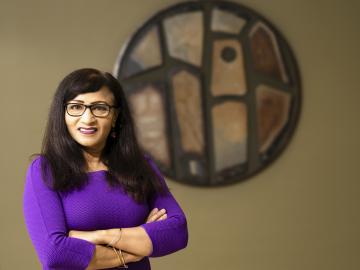
Madhavi Martin brings a physicist’s tools and perspective to biological and environmental research at the Department of Energy’s Oak Ridge National Laboratory, supporting advances in bioenergy, soil carbon storage and environmental monitoring, and even helping solve a murder mystery.
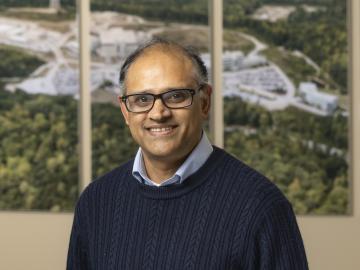
Having passed the midpoint of his career, physicist Mali Balasubramanian was part of a tight-knit team at a premier research facility for X-ray spectroscopy. But then another position opened, at ORNL— one that would take him in a new direction.
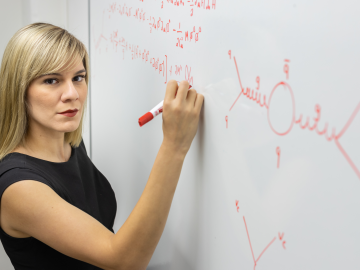
Andrea Delgado is looking for elementary particles that seem so abstract, there appears to be no obvious short-term benefit to her research.
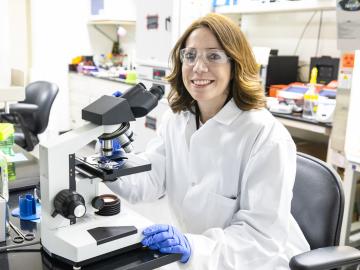
Joanna Tannous has found the perfect organism to study to satisfy her deeply curious nature, her skills in biochemistry and genetics, and a drive to create solutions for a better world. The organism is a poorly understood life form that greatly influences its environment and is unique enough to deserve its own biological kingdom: fungi.



